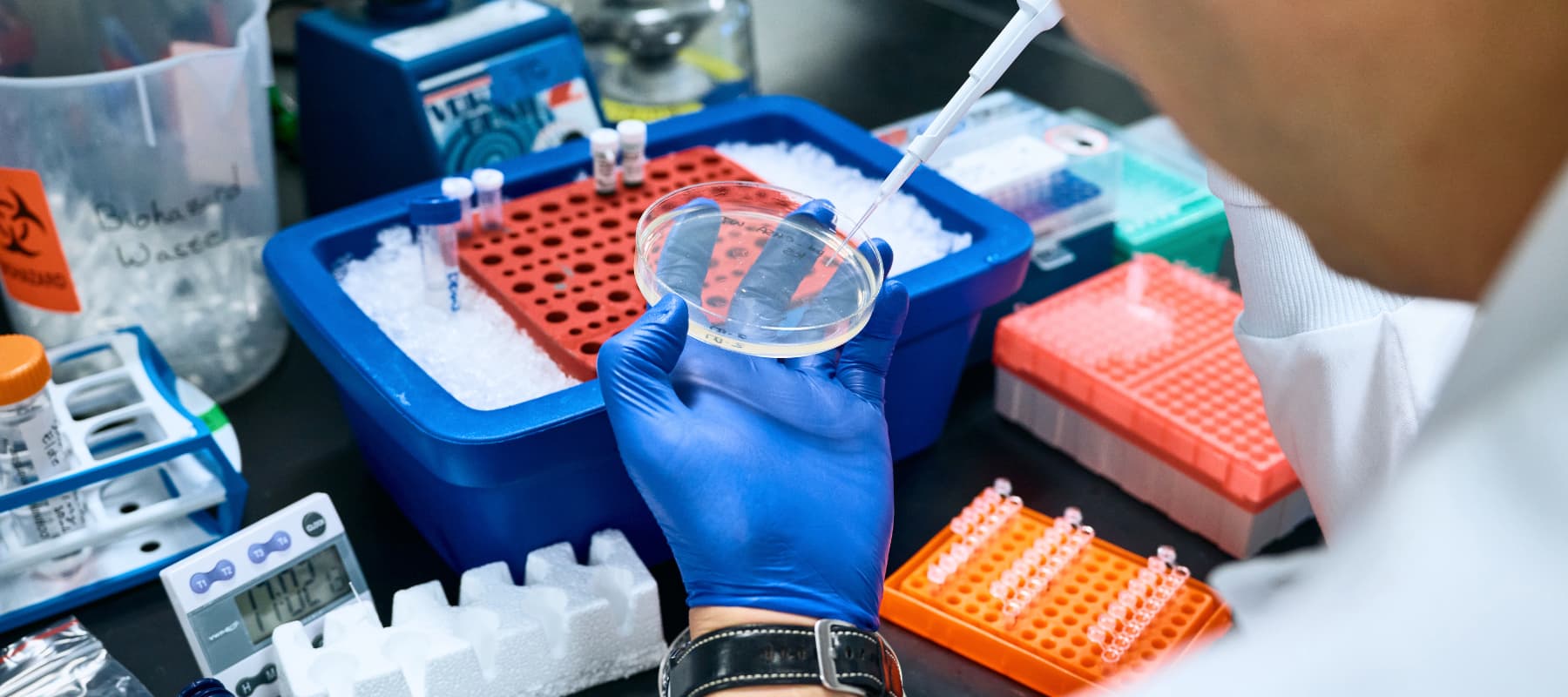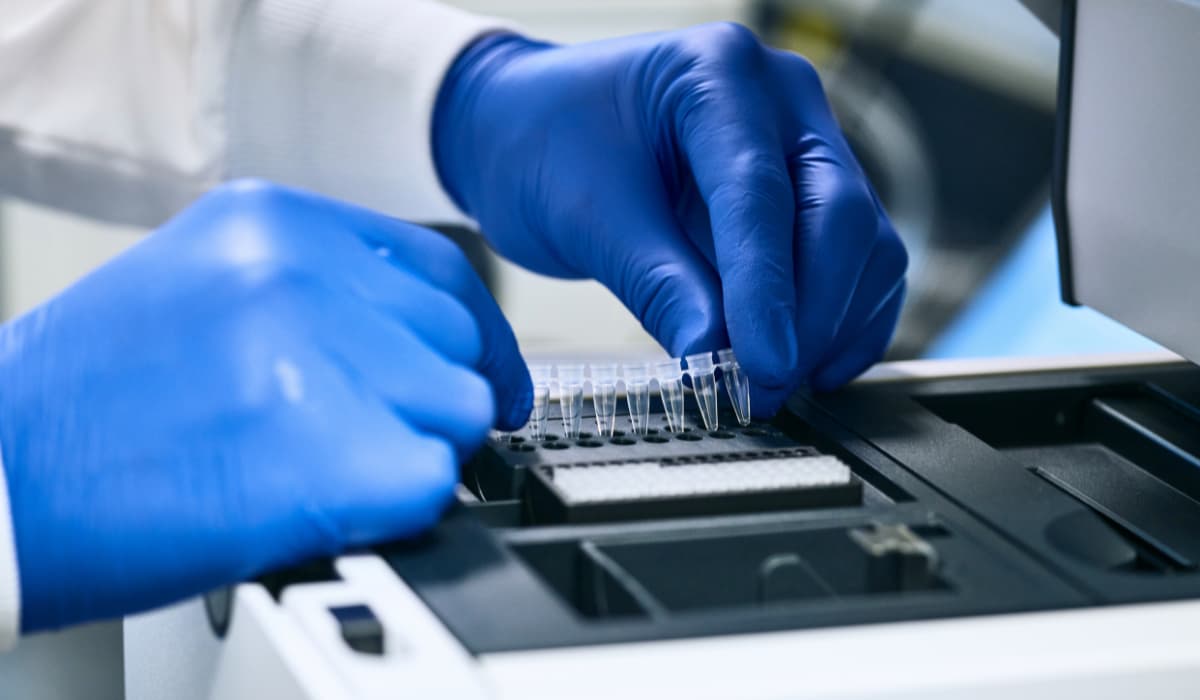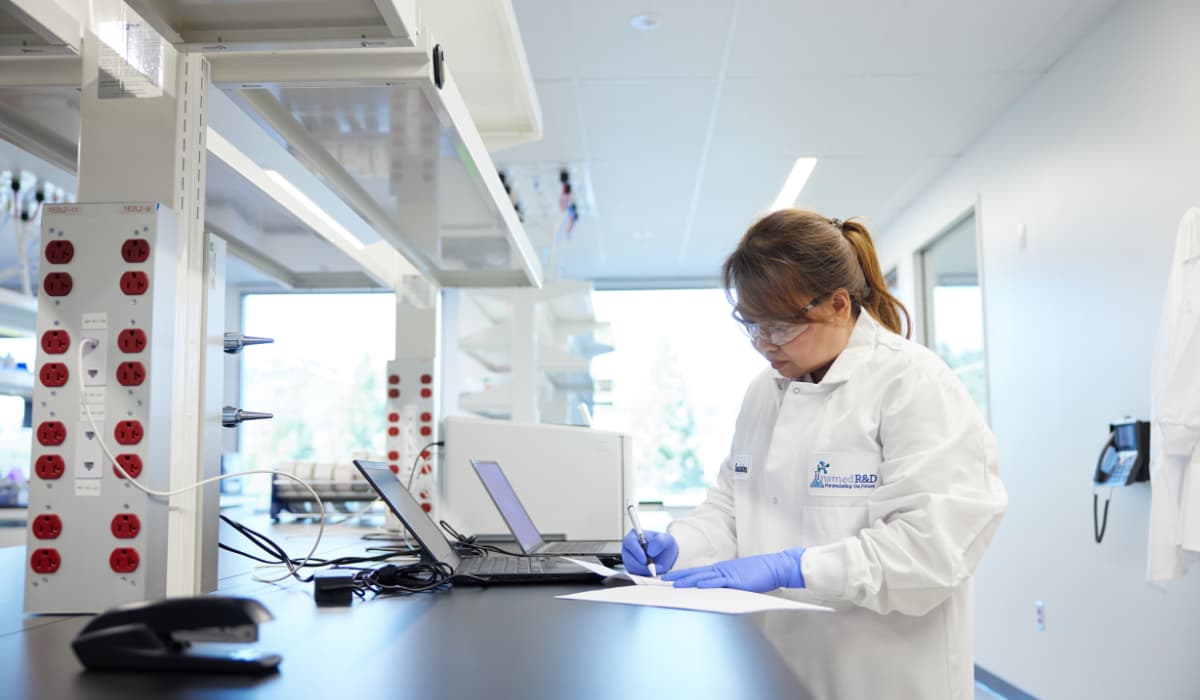
How Insmed is Pioneering the Next Frontier in Rare Disease R&D
Insmed’s R&D strategy is firmly rooted in putting patients at the forefront while harnessing cutting-edge technologies—strategically acquired and developed over the last two years—that set us on the path to become one of the next great biotechnology companies. What lies within this new frontier? Artificial intelligence (AI)-driven protein engineering to reduce the innate immunogenicity of therapeutic proteins; next-generation gene therapies with targeted delivery to potentially address currently intractable diseases like Duchenne muscular dystrophy (DMD); RNA end-joining technology to enable delivery of genes that are too large for current vehicles, which may help target conditions like Stargardt disease; and proprietary, algae-based protein manufacturing to increase production speed while reducing cost.
All of these technologies and capabilities build upon the success of our first approved product, a first-in-disease therapy for a rare pulmonary disease that we developed entirely in-house and have since commercialized in three global regions. With an unwavering focus on pursuing only those programs that stand to make a profound impact on patients’ lives, we have cultivated a robust pipeline capable of producing the next generation of highly innovative medicines, with numerous clinical milestones set to read out in the next 12 months.
Closing Critical Research Gaps to Open New Possibilities

In the past several years, gene therapy has begun to rewrite treatment outcomes in areas like rare blood disorders, neuromuscular disorders, and vision loss.1 By focusing on the root cause of disease, gene therapy can aid in slowing or preventing disease progression and offers patients a better chance at long-term improvements. Advances in the understanding of gene therapy and a growing talent pool with this unique expertise have ushered in new hope for an industry sea change.
While the technology holds incredible promise, a number of challenges persist: high dose requirements, often leading to an increased risk of toxicity; inability to target large genes with current methods; immunogenicity that makes it challenging to re-dose patients; manufacturing cost and complexity; and unique technical capability and experience needed in gene therapy manufacturing.
Similar challenges exist with therapeutic proteins, where immunogenicity concerns continue to limit the usefulness of current therapies and hinder the development of new ones. By potentially addressing these challenges, Insmed is poised to make a difference for the many patients still waiting on progress.
A Research Engine for the Future

We are building our early-stage research program with exceptional talent and disruptive capabilities to potentially bring new treatments to market faster and at less cost than was previously possible. The technologies we have brought in-house are highly complementary and synergistic, both with one another and with Insmed’s existing business. While less than 20 percent of our expenditures are devoted to our early-stage programs, we anticipate producing at least six investigational new drug applications (INDs) by the end of 2025, enabling us to develop potential cutting-edge therapies across a broad range of rare diseases.
In gene therapy, we’ve positioned ourselves to be uniquely capable of addressing challenges in the current landscape with novel, proprietary technologies. Our expert team is pioneering targeted delivery methods that may offer significant dose reduction, with the goal of an enhanced safety profile while remaining efficacious. We plan to begin first-in-human clinical trials in DMD, a genetic disorder characterized by progressive muscle degeneration and weakness, later this year, with muscle biopsy data expected in the first half of 2024. While progress has been made in the treatment of this devastating disease, we believe further examination and innovation are needed.
In parallel, our unique RNA end-joining technology enables the delivery of large genes that currently cannot be delivered using traditional gene therapy approaches. This advancement may help us target conditions such as Stargardt disease, a hereditary retinal disease that causes vision loss, typically beginning in childhood, and that previously could not be addressed with gene therapy.
Hand in hand with these advances, our proprietary protein deimmunization platform has the potential to overcome the immunogenicity challenges associated with biotherapeutics by using AI to reengineer proteins without their immunogenic properties. Using this platform, we are working to develop protein therapeutics with the goal of being less immunogenic as well as re-dosable gene therapies to potentially unlock new, high unmet need disease targets. Lastly, our proprietary algae-based protein manufacturing methods have the potential to yield reductions in both time and cost, overcoming many of the current challenges with gene therapy production.
Together, these highly innovative approaches have the potential to make a tremendous impact on patients, their families, and today’s rare disease treatment landscape.
Expanding Our Impact
Insmed’s development programs are singularly focused on overcoming existing challenges to deliver potentially life-transforming therapies—regardless of modality—to patients with urgent unmet needs. To get there, we will be unrelenting in building the next great sustainable biotechnology company, having already proven our success at each stage of development from research through commercialization.
Our first program was built around the pursuit of a much-needed treatment approach with the highest impact potential for patients – a core tenet that continues to define our organizational culture today. As we expand our research team, talent, and capabilities with an eye towards the future, we will continue to assess promising areas of potential investment where Insmed is uniquely equipped to make a difference. To learn more about Insmed’s new frontier in rare disease research, visit https://insmed.com/events/rd-day/.
References
- Gene Therapy For Rare Diseases, “Gene Therapy” (2023), Available at: https://rarediseases.org/gene-therapy/.